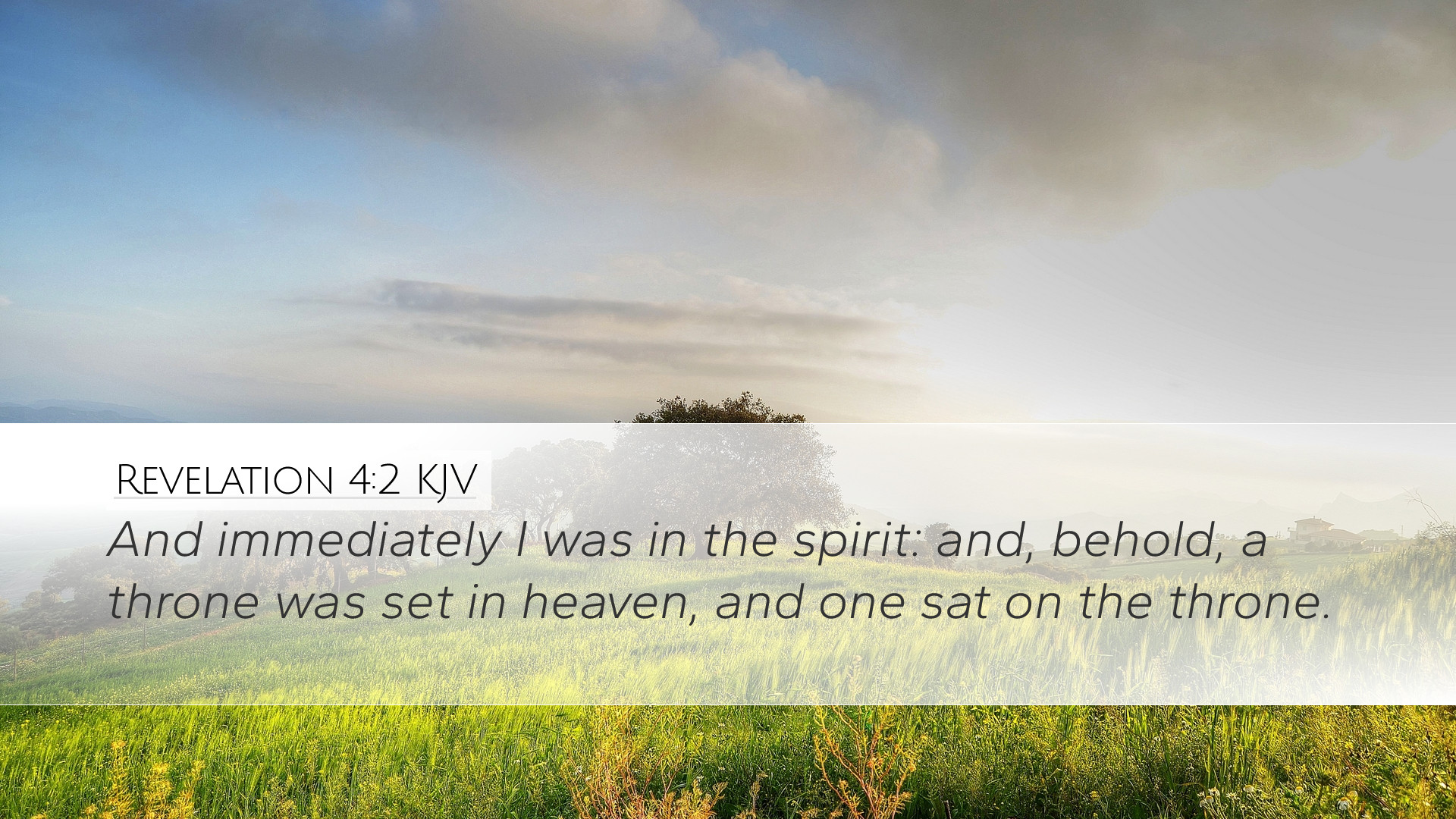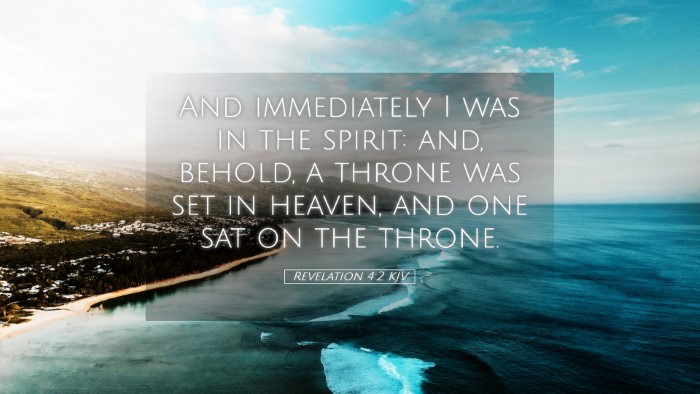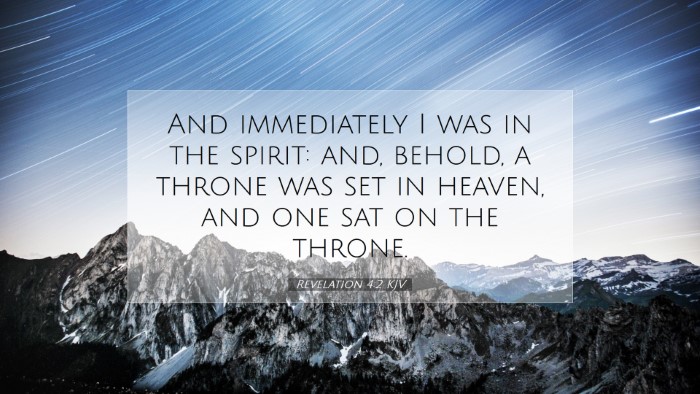Commentary on Revelation 4:2
Bible Verse: "Immediately I was in the Spirit: and, behold, a throne was set in heaven, and one sat on the throne."
Introduction
This verse marks a pivotal moment in the Revelation of John, transitioning from the letters to the seven churches to the grand vision of the heavenly throne room. The significance of John being "in the Spirit" highlights a state of heightened perception and divine revelation. We will explore insights from prominent public domain commentaries to unfold the theological richness of this passage.
Historical Context
John's Revelation comes during a time of persecution for Christians. The imagery of the throne signifies divine sovereignty amidst chaos, emphasizing that God remains in control. Understanding the historical woes faced by the early church provides essential background to appreciate the comfort and reassurances found in the text.
Verse Analysis
The Phrase "Immediately I was in the Spirit"
Matthew Henry suggests that this experience refers to a spiritual state of being, allowing John to transcend earthly concerns and connect directly with divine realities. This phrase indicates preparedness to receive profound spiritual insights.
Albert Barnes elaborates on this, indicating that being in the Spirit involves a divine intervention where God takes control over John’s faculties, revealing heavenly truths. The immediacy of the experience underscores the gravity of what he is about to witness.
"A Throne Was Set in Heaven"
The throne in heaven symbolizes authority and majesty. John’s introduction to this scene is crucial for understanding the overarching theme of God's rule in the world.
Adam Clarke points out that the throne does not simply represent power but also the governing wisdom and justice of God. The placement of the throne "in heaven" identifies it as the ultimate source of all authority, contrasting the transient powers of the earth.
"And One Sat on the Throne"
This phrase emphasizes the singularity of divine rule. It embodies the assurance that amidst all spiritual and physical turmoil, there is a sovereign God actively presiding over creation.
Matthew Henry comments on the implications of God sitting on the throne. It denotes not only rest but also control, suggesting that all events unfold according to His perfect will.
Albert Barnes discusses the significance of being seated, drawing a parallel to the authority and successful completion of governance, where God does not merely rule in turbulence but sits firmly, watching over His creation unfolding according to His providence.
Theological Implications
This passage offers rich theological insights relevant to pastors, students, and theologians:
- Divine Sovereignty: The image of God on the throne reinforces the belief that God is sovereign over all circumstances, encouraging believers to trust in His ultimate plan.
- Spiritual Revelation: The transition to being "in the Spirit" showcases the importance of spiritual discernment in understanding divine mysteries. This spiritual dimension is critical in pastoral ministry and personal devotion.
- Comfort in Persecution: For early Christians, knowing that God reigns in heaven provided hope amid their struggles. Today's believers also find comfort in the eternal sovereignty of God, especially in trials.
Application for Present-Day Believers
Revelation 4:2 serves as a powerful reminder for contemporary believers:
- Encouragement in Worship: The vision of the throne encourages believers to approach worship with the recognition of God’s majesty, responding in awe and reverence.
- Hope and Assurance: In times of uncertainty or distress, remembering that God is still on His throne bolsters faith and provides peace.
- Call to Spiritual Alertness: Being "in the Spirit" invites believers to cultivate a sensitivity to the Holy Spirit’s guidance, enabling deeper engagement with Scriptures and the living God.
Conclusion
Revelation 4:2 invites us into an extraordinary experience of divine revelation, focusing on God's unwavering sovereignty and the assurance of His presence. The commentaries of Matthew Henry, Albert Barnes, and Adam Clarke resonate with scholars and laypersons alike, framing this verse as not merely a glimpse of the future but as an invitation to experience the profound truths of God's character today.


